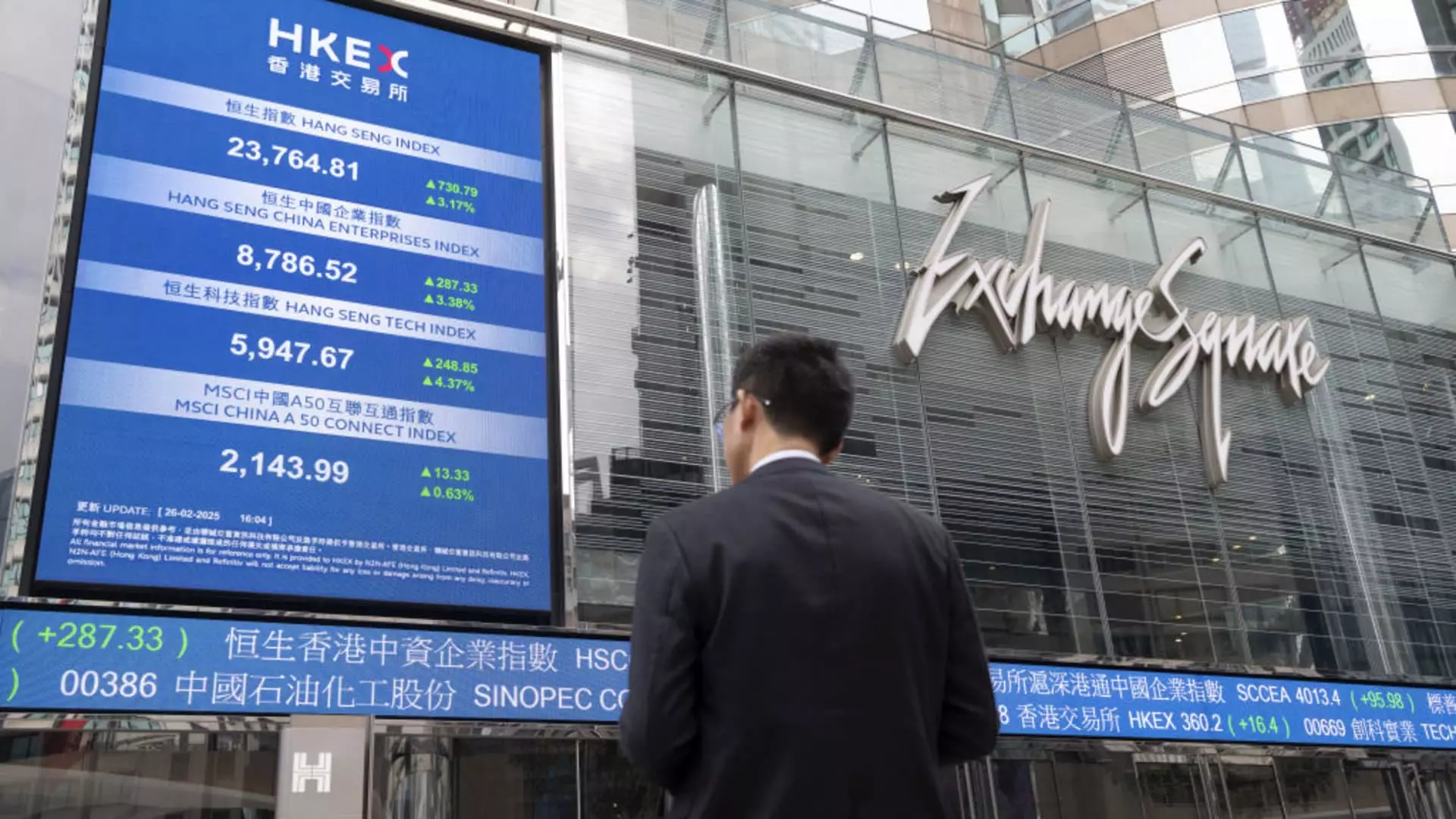In recent months, the Chinese IPO landscape has apparently revived with an eager rush towards the Hong Kong Stock Exchange, inspired primarily by advancements in artificial intelligence represented by companies like DeepSeek. Despite the surge in enthusiasm, we must tread carefully; this resurgence may be merely a superficial excitement layered over a reality fraught with pitfalls. Investors are rightfully excited about the potential returns, but it’s necessary to dig deeper and understand the broader implications.
The Hong Kong IPO market, which had been languishing for years, has shown signs of life. Initial public offerings have sprung forth with a renewed fervor, leading to a sudden spike in investor confidence. However, let’s not forget that this resurgence arrives alongside lingering U.S.-China trade tensions and regulatory scrutiny. While George Chan, of EY, paints an idyllic landscape where “everyone is working perfectly together,” the situation is more complex. Investors need to recognize that an IPO boom can oftentimes create a bubble, a fleeting joy that may vanish before they can cash out.
AI Innovations: Boon or Curse?
The excitement around AI, particularly in the wake of DeepSeek’s claims to rival established leaders like OpenAI, certainly kindles hope. Yet it also raises a question: is this hype sustainable? The recent high-profile performance of DeepSeek has created a sense that the innovation landscape in China is about to explode. But let’s not overlook the stark reality of U.S. restrictions on advanced chip technologies crucial for AI development. These conditions cast a long shadow over any aspirations for long-term growth.
Furthermore, while advocates hail the arrival of companies like Mixue and Contemporary Amperex Technology (CATL), we must pragmatically consider whether these IPOs align with sustainable business practices. The excitement around perceived breakthroughs in technology must be examined through a lens of regulatory stability and real-world application. Will these businesses be able to thrive under pressure, or are they simply riding a tides of speculative investment?
The Game of Regulatory Tug-of-War
The political landscape in China has been anything but consistent. After years of a tightening grip on private companies, the recent overtures towards a more supportive regulatory framework could signify a new direction. However, history tells us to be cautious. The fallout from the Didi IPO in 2021 offers a cautionary tale of how quickly the winds can change. Just as optimism has risen, it can come crashing down, leaving investors reeling in its wake.
It’s critical for both new and seasoned investors to remain acutely aware of how regulatory frameworks can shift. The apparent looser grip from the state may appear favorable now, but such changes can be volatile and unpredictable. The welcoming arms of regulatory bodies could just as easily transform into a chokehold if pressures deem it necessary.
Investor Reactions: Euphoria vs. Rationality
As we witness a cascade of IPOs orchestrated by companies vying for the spotlight, one cannot help but dissect the psychology behind the investor behavior. The thrill of a new opportunity often incites a rush that cloud’s judgment. It’s essential to realize that while the IPOs appear attractive on the surface, they may well be gilded traps wrapped in alluring promises.
Moreover, participation in the IPO frenzy without careful valuation can lead to disillusionment when bubble gum pops. As EY’s Chan pointedly remarked, a solitary incident could reverse the trend, making investor caution a paramount consideration. Jumping into the crowd without critical analysis can lead to a devastating loss; hence, due diligence is essential, especially in a period filled with such potential uncertainty.
China’s Economic Recovery: A Mirage?
While the return of U.S. long-term funds suggests a glimmer of recovered confidence in China’s economic landscape, the absence of a holistic economic turnaround speaks volumes. The resurgence of IPOs may not necessarily translate to genuine economic rebound and sustainable growth. As such, we must adopt a level-headed perspective, as this excitement might unfortunately be more transient than transformative.
A cautious yet optimistic viewpoint serves us best; the budding attraction of Hong Kong’s IPO markets should not blindfold us to the broader economic realities at play. Economic indicators are essential, yet they require context and analysis. The past few months could signify a mere momentary reprieve rather than the dawn of an enduring renaissance in Hong Kong’s financial sectors.
Navigating the nuanced currents of China’s financial resurgence necessitates a blend of enthusiasm and skepticism. While the promise of innovation holds remarkable allure, it’s crucial for investors to maintain their pragmatism amidst the ever-shifting landscape of opportunity and risk.

